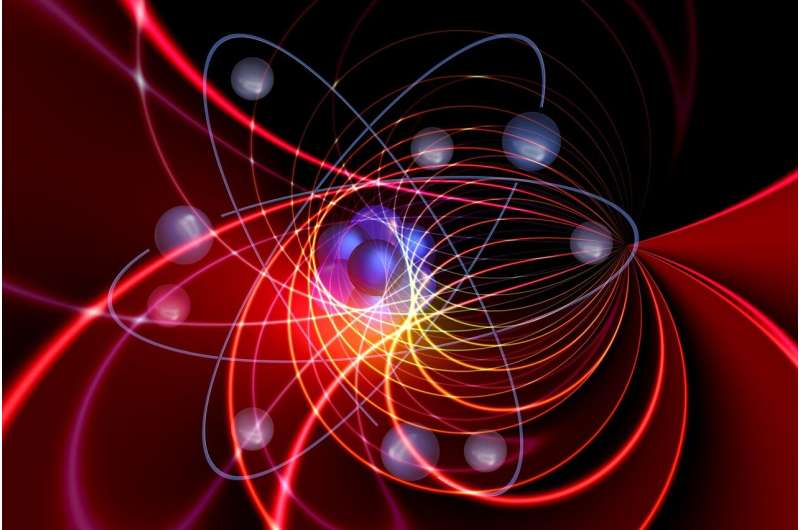Credit: CC0 Public Domain
Researchers at the University of Chicago published a novel technique for improving the reliability of quantum computers by accessing higher energy levels than traditionally considered. Most prior work in quantum computation deals with "qubits," the quantum analogue of binary bits that encode either zero or one. The new work instead leverages "qutrits," quantum analogues of three-level trits capable of representing zero, one or two.
The UChicago group worked alongside researchers based at Duke University. Both groups are part of the EPiQC (Enabling Practical-scale Quantum Computation) collaboration, an NSF Expedition in Computing. EPiQC's interdisciplinary research spans from algorithm and software development to architecture and hardware design, with the ultimate goal of more quickly realizing the enormous potential of quantum computing for scientific discovery and computing innovation.
Accessing higher energy levels
The work can be viewed in the context of a fundamental space-time trade-off that is common in computer science: Programs can be sped up by using more memory, or alternatively, programs can reduce memory requirements by incurring longer runtimes. But in the context of quantum computing, where near-term machines are severely constrained in both memory and runtimes supported, neither of these tradeoffs are acceptable.
The solution the EPiQC team discovered was to break the abstraction of using binary qubits. "While binary logic makes sense for the on-off physics underlying conventional computers, quantum hardware is not inherently binary," explains researcher Pranav Gokhale, a graduate student at the University of Chicago. In fact, states on a quantum computer belong to an infinite spectrum, so the qubit is merely an artificially engineered choice of using only two of the states.
Credit: University of Chicago
The team found that by allowing the use of three states via qutrits, one of the fundamental operations in quantum computation is exponentially faster without requiring additional memory. The team verified their discovery with simulations run under realistic noise conditions.
"Qutrits do come at a cost, since the presence of an additional state implies more possible sources of error," said Gokhale. "Nonetheless, our simulations demonstrate that qutrits have a convincing advantage with two to ten times higher reliability than qubit-only algorithms for near-term benchmarks."
Bridging the gap between hardware and software
The team's discovery is well matched to EPiQC's interdisciplinary focus on bridging the gap between quantum hardware and software. An early stage of this work was presented at the Quantum Information Processing Conference this January, where it won the award for best poster. Since then, the research has been fine-tuned to match sophisticated hardware models developed in conjunction with experts working on superconducting and trapped ion quantum computers.
"By tailoring algorithms to take advantage of the unique capabilities of quantum hardware, we realize efficiency gains that are otherwise hidden behind the abstraction barriers between hardware and software," notes Fred Chong, Seymour Goodman Professor of Computer Science at UChicago and lead PI for EPiQC. "In this case, our hardware modeling led us to revisit and challenge the conventional wisdom that binary operation is best for computation."
The full paper, "Asymptotic Improvements to Quantum Circuits via Qutrits," is now published on arXiv.
More information: Pranav Gokhale et al. Asymptotic improvements to quantum circuits via qutrits, Proceedings of the 46th International Symposium on Computer Architecture - ISCA '19 (2019). DOI: 10.1145/3307650.3322253
Provided by University of Chicago
























